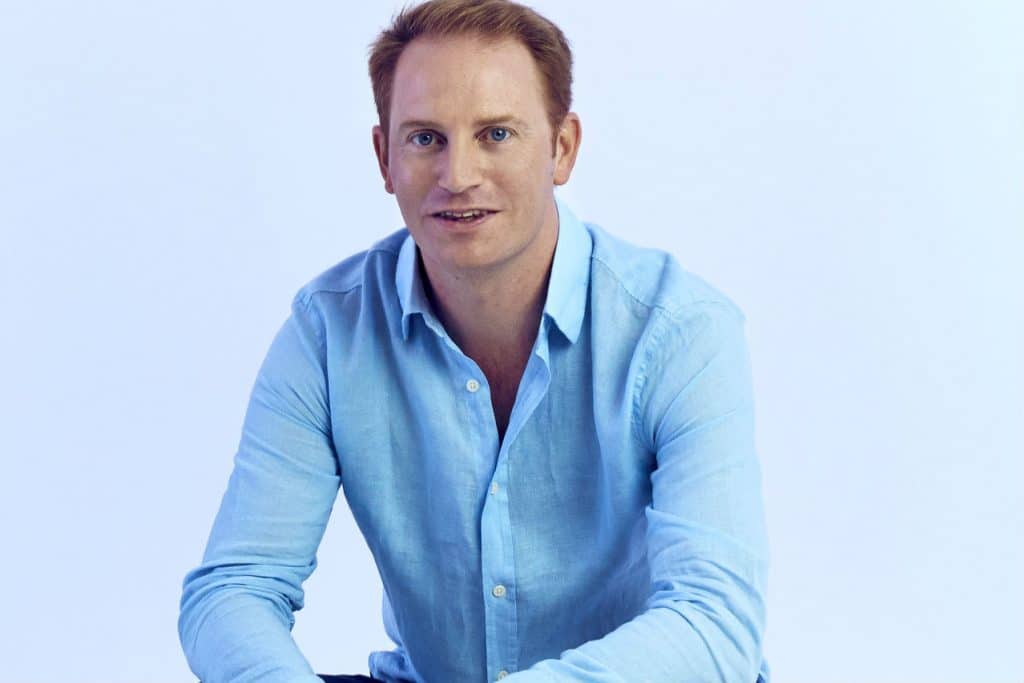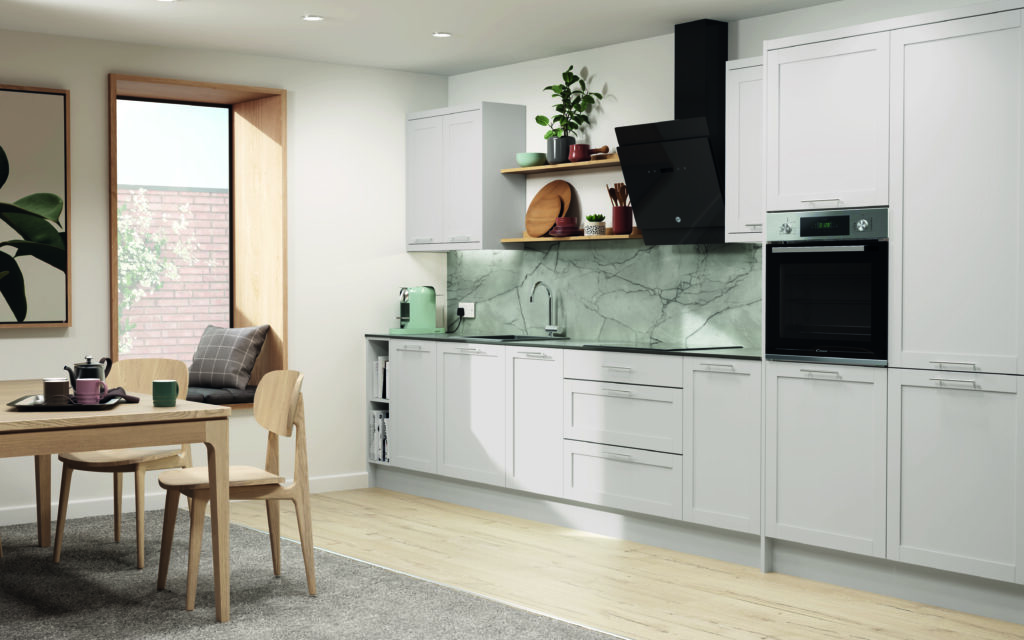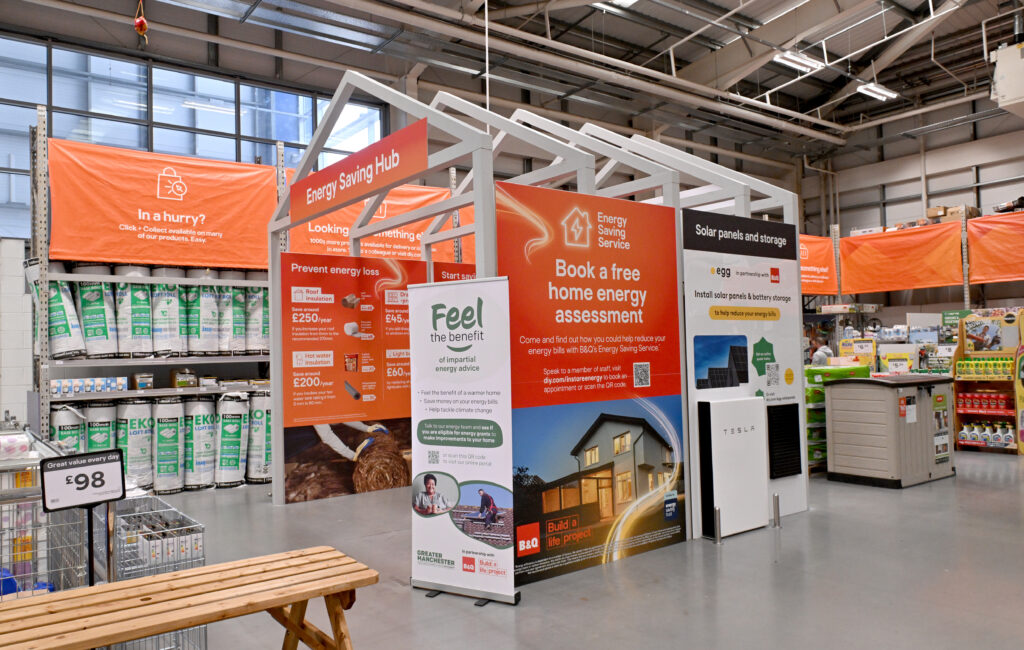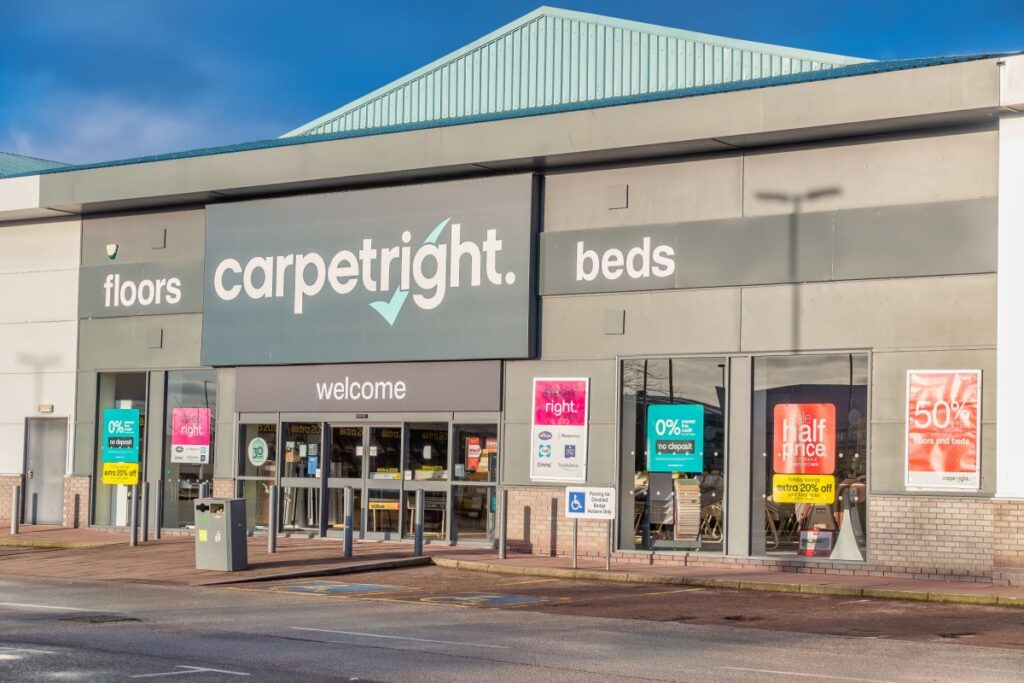You’ve just signed a major distribution partnership with Primo International. What does this mean for Simba?
Primo International is an excellent alliance for Simba. They are the best partner for the US, Canada, South America, Mexico and the Caribbean markets and we look forward to shared successes.
Strategically they are also a great match, as like us, they put the customer at the heart of what they do and the relationship will allow us exclusive access to their retailer network.
Tell me about the story of Simba.
James Cox, Andrew McClements and I launched Simba in February 2016. Since then it’s been an amazing journey to our second anniversary. We’ve had over 100,000 happy customers and just recently won Product of the Year.
My background is accountancy. James had previously helped me raise funds for an elite leisurewear brand called Tribe Sports. He used to work with startups, helping them with funding and strategy. Andrew, on the other hand, has an enviable heritage within the sector – a real mattress industry veteran with over 30 years’ experience.
We were looking for a real-life problem to solve. When James met our fellow co-founder Andrew in 2015, it quickly became apparent that the mattress industry was ripe for innovation. For too long, mattresses had been sold through expensive stores at massively inflated prices. And until now, investing in one had been overwhelming and confusing decision. A decision that you’re supposed to make after awkwardly hopping on and off a bed in public for a couple of minutes.
We had been looking for something for a long time where there was a large addressable market, a genuine need and the opportunity. And here it was.
We wanted to develop a product that wasn’t just good value, but pioneering. With Andrew’s heritage in the sector, it felt like the perfect opportunity to change people’s perception of the humble mattress.
You spend on average 26 years of your life on your mattress, yet it’s the most underserviced, misunderstood part of one’s life. We set out to produce the best and simplify the rest.
“You spend on average 26 years of your life on your mattress, yet it’s the most underserviced, misunderstood part of one’s life”
There’s an increasing number of bedding and mattress retailers emerging online – do you think there’s a reason behind this trend?
There are a variety of different reasons at play. Economically, there was a period following the 2008 recession when spending on household goods wasn’t a priority, people were making do with what they already had and weren’t moving because selling was more difficult. That stagnated the market generally. Wider economic improvements have contributed to the boom.
Sleep used to be an aspect of people’s routines trumped by exercise, diet and emotional wellbeing. In the past, there was the unfounded belief if you were able to function on very little sleep and push the limits of what you could achieve in your waking hours as a result, you were a high achiever.
But more recently, there’s been surge of scientific research that bucks this trend, cementing the notion that sleep should be considered to be the fourth pillar of health. It’s a vital part of a person’s daily routine, enabling body and mind to recover and function optimally.
People are also more shopping savvy than ever before. They know that shopping online can save them money, so habitually use online sites for everything possible. It was only logical that if we started to offer better mattresses online at a more reasonable price, this would have wide appeal. As with any great product, competition appears and then you have a market boom.
We don’t think shopping on the high street is dead, though. There are certain customers that prefer a physical store and it’s important for us to offer both. Simba’s recipe for success is based on a direct ecommerce strategy, supplemented by scale platforms such as Amazon, Souk and Takealot as well as leading territory retail partnerships, such as John Lewis, Furniture Village, and over 100 AIS stores stocking the brand in the UK, with 200 more stores expected in 2018.
That said, for the people who do prefer online shopping, I’d say it’s because they personally find it convenient and it works for a busy lifestyle. With Simba and the online model, there’s one product that adapts to the user and it’s fairly priced. It’s also risk-free shopping online. If you don’t like it, you just send it back. If you can combine ease, an outstanding product and a good price – you’re winning and so is your customer.
How is Simba different to other bedding and mattress retailers?
Our goal has always been to design a mattress that would satisfy the sleep needs of 95 per cent of the population – a true marriage of form and function. What was very clear to us was that no one had really integrated any technology into the design process before.
We spent over a year in R&D working with sleep scientists, psychologists and textile technologists so we could create a premium hybrid model. It was developed uniquely in collaboration with the Sleep to Live Institute in the US, using their bank of global body profiling data from over 10 million people.
Our data shows that you don’t need to worry about whether the bed is hard or soft, what matters is creating something that responds to the needs of the individual.
The Simba Hybrid is the first dual spring and memory foam mattress of its kind in the UK market. A complex layer cake offering the comfort of five layers of speciality and performance fabrics with the support of 2500 patented conical pocket springs. It’s understandable how it may seem like just foam and springs but it’s actually a balanced product and would not have been possible without technology.
Innovation within technical textiles is now incredibly advanced. Each of the hand-picked materials within the Simba Hybrid has a clear function and performs a vital role in giving you the best night’s sleep possible. The simple direct-to-consumer offerings that the likes of our competitors have created are clever, but more from their marketing than the product itself.
People don’t think of something as technological unless it has a switch or a screen. Yet, the Simba Hybrid was engineered and tested for over a year, much like a piece of hardware. It shapes itself to anyone’s frame – even if they are sharing a bed with someone of an opposite build or stature, practically guaranteeing a good night’s sleep.
How is Simba addressing some of the challenges facing the high street as a whole?
Our foundations are rooted in a digital business, so we’ve grown up having to be super agile, flexible and customer service oriented. We’ve scaled quickly through a successful omnichannel approach and place a great deal of importance on strategic retail partners.
Our retail partners help us reach an important share of customers that want to try the mattress before they buy, and give us a presence on the high street, visibility, and lastly, show that important retailers throughout the UK trust our ability to deliver a superior product by stocking us.
What would you say is the biggest risk for the retail sector, given the current climate?
Rising consumer expectations and uncertainty with Brexit. Simba was in its infancy at the time of Brexit, and we’re growing the business internationally with it in mind, protecting our UK base of operations. In general, shifting consumer behaviours and a general caution facing into uncertain economic headwind are certainly challenges that we and our partners will have to overcome going forward.
“We don’t think shopping on the high street is dead. There are certain customers that prefer a physical store and it’s important for us to offer both”
Describe your role and responsibilities as managing director of Simba.
I’m responsible for the performance of the business. Whether that’s making sure everyone I work with is able to work to the best of their ability, to finely tuning strategy and direction.
I work very closely with all teams across the business looking at how we can continually improve the shopping experience across every consumer touch point.
I also lead the company’s geographical expansion and new markets.
Tell us a bit about yourself and your background before Simba.
After graduating from Sheffield University with a history degree, I was fortunate enough to get a place on the Ernst & Young accountancy training scheme. Here I was auditing rolls in businesses including BA, Hilton Group, McColl’s, and Lastminute.com. I was able to see big balance sheets close up and fell in love with start-ups.
Lastminute.com was one of my favourites. Between 2001-2002 it acquired six businesses. I loved the energy. The founders were all there until 2am each morning and I would stay with them to help meet the acquisitions.
I followed an inspiring friend Brent Hoberman on a new venture, mydeco.com, an interior design business. Brent would say, “you either succeed or fail so just go for it”, so I went from being an accountant to properly driving an internet business, attending investor meetings and pitching for business and money. It was the equivalent of a three-year MBA.
By 2010, I reached a point in my startup apprenticeship where I thought “why don’t I just do it myself?” and so I founded elite leisurewear brand Tribe Sports with a large chunk of family investment.
I met James (Cox) for a beer in 2015 and heard about a sleep company he was developing. What they were creating was something you could get an enormous amount of traffic behind and the guys in the team knew mattresses like the back of their hands. It’s a high margin market and a phenomenal industry. I was keen to get involved.
I decided to join forces with James and Andrew in October 2015 and the rest is history.
What got you into retail in the first place?
The challenge. I liken each start-up to the kick I get out of competing in Iron Man fitness challenges. I guess this plays a part as to why I got into retail. I’m less motivated by the financial reward, and more by the deals themselves.
How has your previous experience aided your current job?
For a company to be agile you need to have the basics in place. My background in accounting means that I can navigate all of the data, but have also got the skills to be able to make a successful interpretation, and provide sound business advice that can influence decisions on where the business needs to go. You need to be flexible enough to make changes as necessary with the available information.
What is the most challenging aspect of your job?
Not having enough hours in the day.
And the most rewarding?
With Simba, it’s a passion for building something that has some longevity and giving people something genuinely life-changing because a lot of us sleep on bad mattresses. It’s also providing us with an opportunity to help other entrepreneurs too.
What advice would you give someone who is considering a career in retail?
It’s a crowded place so a lot of tenacity. Simba is an incredible formula of different talents coming together. So, if you have a niche specialism – bring that extra value that others can’t offer.
Click here to sign up to Retail Gazette‘s free daily email newsletter


















